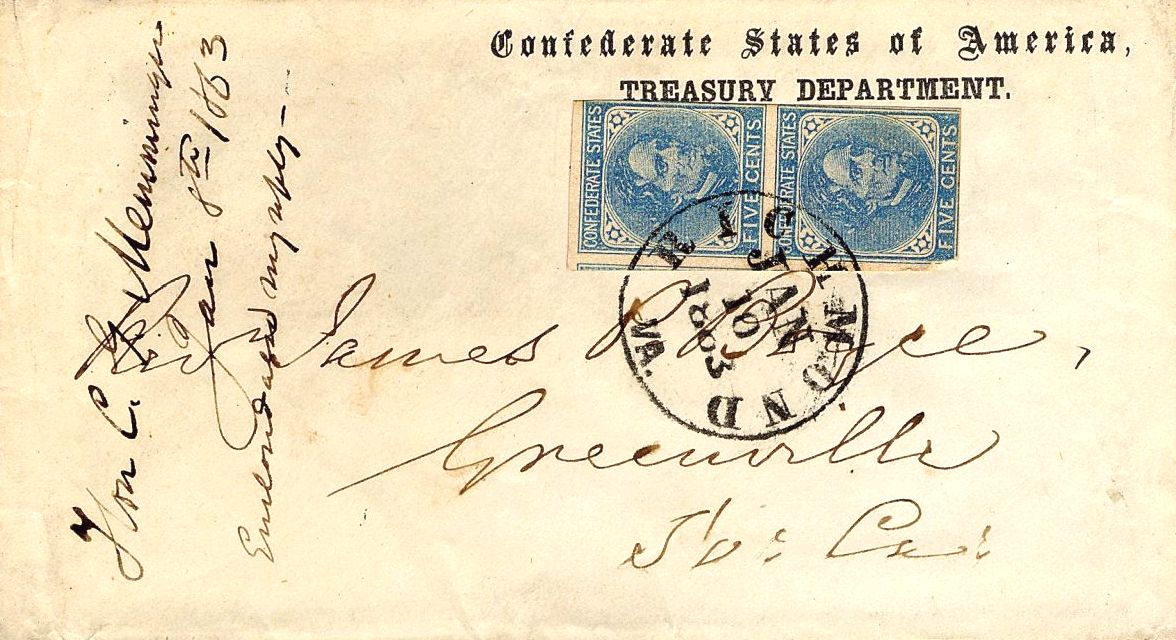5fish
Well-Known Member
- Joined
- Jul 28, 2019
- Messages
- 10,739
- Reaction score
- 4,570
Here it is little is known about the Confederate Post Office...October 16,

Postage stamps and postal history of the Confederate States - Wikipedia
 en.m.wikipedia.org
en.m.wikipedia.org





